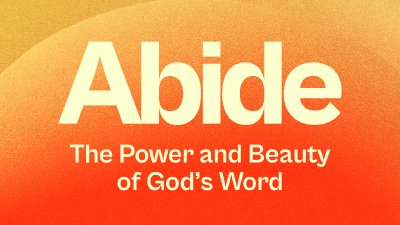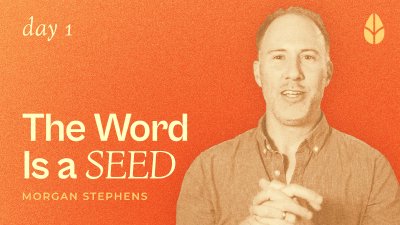Read James 1:19–25
“For if anyone is a hearer of the word and not a doer, he is like a man who looks intently at his natural face in a mirror. For he looks at himself and goes away and at once forgets what he was like.” — James 1:23–24
James is writing to Christian Jews scattered throughout the Roman Empire who are experiencing trials and who, during these trials, are following the worldly practices of those around them instead of putting God’s Word into practice. And so, throughout his letter, James makes the point that it’s not enough to hear God’s Word. We have to do what it says.
Here, James compares someone who hears the Word and doesn’t do what it says to a person who examines himself in a mirror but then walks away and forgets what he looks like. The analogy almost seems ludicrous. How can you look closely at yourself to see how you really look and then walk away and forget? But that’s the point that James is trying to make. Do you examine yourself in the mirror in the morning, checking to make sure your hair isn’t sticking up straight, or you don’t have anything in your teeth? In this process, if you noticed a giant smudge on your face, would you walk away and forget about it? Just as it would be foolish to walk away and do nothing about a smudge on your face–to forget what you look like–it is foolish after examining God’s Word to walk away and not obey it.
Like a mirror, God’s Word shows us what we’re really like. Without his Word, it’s easy to deceive ourselves into thinking we’re something we’re not, to ignore our weaknesses, and make excuses for our sin, especially when we’re in the midst of challenging circumstances like James’ audience. But this isn’t possible when we hold up God’s Word to our life. When we examine our lives by the truth of God’s Word, we see what we’re really like, and we’re met with God’s grace and mercy to repent and be transformed.
We need to investigate God’s Word so that it can show us who we really are, but we can’t stop there. We then need to walk away and put God’s Word into practice.
Reflect:
1. How have you seen God’s grace and mercy at work in your life?
2. Are there areas where you have been hesitant to put God’s Word into practice? Take a moment to praise him for his love and mercy toward you.
Pray:
“For if anyone is a hearer of the word and not a doer, he is like a man who looks intently at his natural face in a mirror. For he looks at himself and goes away and at once forgets what he was like.” — James 1:23–24
As I read your Word, O Lord, I trust that you will show me what I am like and what you are making me to be. Search my heart and reveal where and how I need to put your Word into practice in my life. Grant me the humility to do what your Word says as a faith response to your free gift of salvation. Holy Spirit, thank you for your power that helps me obey, changes my heart, and directs my steps. In Jesus’ name, amen.
GOD’S WORD REVEALS WHO WE ARE.

Day 3
The Word Is a Mirror
James 1:19–25, Romans 2:13
More from
Abide







